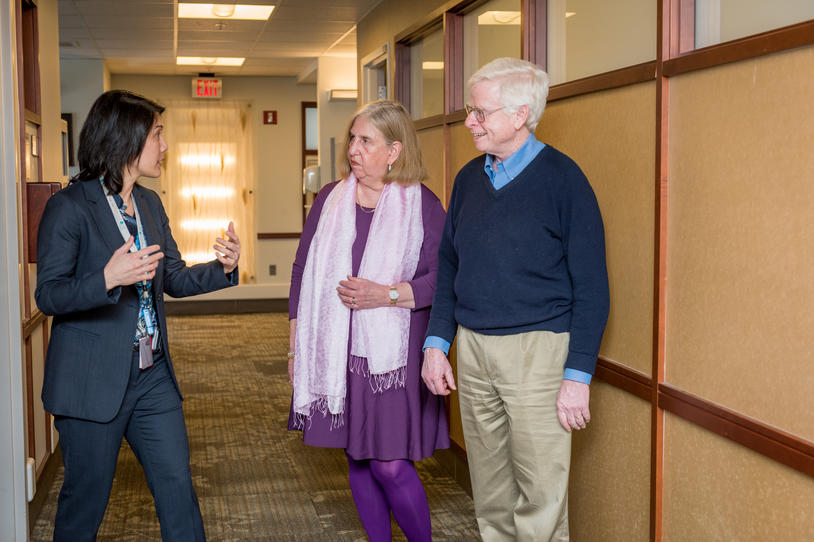
The thought of volunteering for a research study may seem intimidating or even frightening to some. But many people in the Parkinson’s community tell us how rewarding it can be. Importantly, there are many options for people who want to take part in research and speed breakthroughs for Parkinson’s.
In this research roundup blog, we share five studies in need of volunteers.
- The Study that Could Change Everything: You may have seen across the Foundation’s channels that our landmark Parkinson’s Progression Markers Initiative (PPMI) has relaunched. PPMI is open to anyone — with and without Parkinson’s — over 18 living in the United States. Get started today. Medical centers around the world are also recruiting certain groups. People recently diagnosed with Parkinson’s and those with Parkinson’s risk factors — acting out dreams while asleep, family or genetic connection — are especially needed. Reach out to a PPMI site to learn more.
Beyond observational studies like PPMI that measure health over time, clinical trials test whether a drug or other type of therapy works and is safe.
- Headphones-like Device to Manage Symptoms: Parkinson’s researchers are working to find better ways to treat Parkinson’s, including through innovative technologies and approaches. A study is testing a wearable device that looks like headphones to see if it can improve Parkinson’s symptoms. The device delivers different levels of stimulation to the brain through the ears. Volunteers self-administer the treatment at home and visit a medical center for screenings over a three-month period. Wake Forest Health Sciences in Winston-Salem, North Carolina is recruiting 20 people with Parkinson’s. Learn more.
- Vibrating Glove to Improve Parkinson’s Symptoms: Stanford University in California is testing another innovative technology — a vibrating glove to help improve Parkinson’s motor symptoms (tremor, slowness, stiffness). The glove works by delivering stimulation through the fingertips. The study team is recruiting 30 people with Parkinson’s. The Michael J. Fox Foundation (MJFF) funded early work of this non-invasive technology. Learn more about the study.
- Focused Ultrasound in a Different Part of the Brain: Another innovative technology is focused ultrasound — a surgical therapy that ablates dysfunctional cells to ease Parkinson’s tremor and other motor symptoms. (Last month, the treatment gained expanded FDA approval for Parkinson’s stiffness and slowness as well as dyskinesia.) A trial is testing whether focused ultrasound treated in a different part of the brain — the pallidothalamic tract — can improve Parkinson’s motor symptoms. Currently, five sites across the United States and Taiwan are recruiting 50 people with Parkinson’s. Learn more.
- Ketamine to Treat Depression in Parkinson’s: MJFF is committed to finding better treatments for Parkinson’s through a variety of methods. Our Foundation is funding a study testing ketamine — an anesthetic — to treat depression in Parkinson’s disease. (Estimates suggest up to 50 percent of people with Parkinson’s may experience depression. Learn more.) Yale University in New Haven, Connecticut is recruiting 56 people with Parkinson’s and major depressive disorder. Learn more by visiting this page or emailing KetaminePD@yale.edu.
To find these studies or search for others you may be eligible to join, visit Fox Trial Finder. Want to learn more about participating in research? Watch our webinar on demand anytime.
